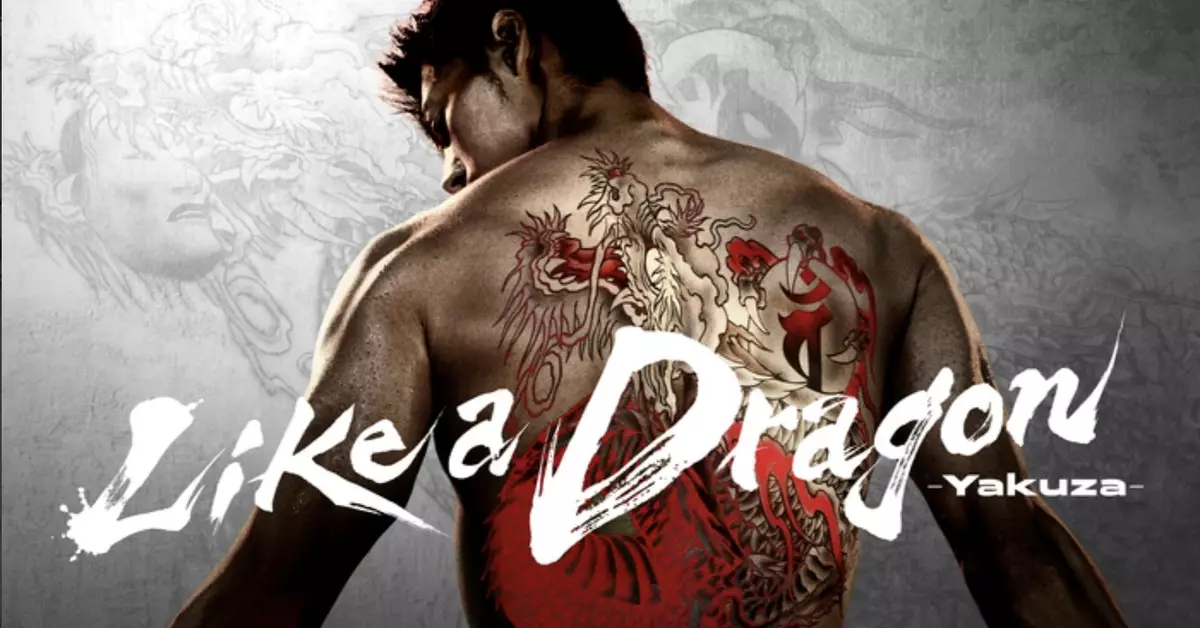In an age where video game adaptations are becoming more frequent in the realm of television, Amazon Prime Video’s “Like a Dragon: Yakuza” emerges as a refreshing take on the genre. As a reporter specializing in the intersection of video games and culture, particularly focusing on marginalized perspectives, it is intriguing to examine how this show interprets the beloved Yakuza franchise. While many adaptations struggle with fidelity to their source material, “Like a Dragon” takes an imaginative leap into an original narrative structure that stands apart from the Yakuza games.
Plot Dynamics that Break Convention
“Like a Dragon” eschews a linear storytelling approach in favor of a dual timeline that alternates between 1995 and 2005, concentrating on protagonist Kazuma Kiryu’s tumultuous journey within the Tojo clan. This complex temporal interplay allows the series to delve into the evolution of Kiryu’s character, showcasing his earlier belonginess and fading connections juxtaposed against a backdrop of violence and betrayal. The narrative unfolds like a puzzle, leaving viewers engaged as they piece together Kiryu’s past and present, enhancing emotional investment in the storyline.
Unlike typical narratives in the franchise, which rely heavily on street brawls and humor, this adaptation offers a darker tone. The violence depicted is visceral and unflinching, setting it apart from the often-playful interaction found in the games. Rather than focusing on over-the-top comedy, the show amplifies the weight of its crimes, creating an intensity that can unsettle the viewer and encourages deeper reflection on the consequences of a life steeped in crime.
Characterization in “Like a Dragon” shapes much of its appeal. Kiryu’s relationships are explored in depth, particularly his connections with two father figures: his orphanage caretaker and the Tojo clan head. The absent presence of these figures in the later timeline adds layer and complexity to Kiryu’s character, compelling viewers to understand not just his actions but the emotional void that shapes them.
This dual perspective enhances the emotional stakes and cultivates a visceral tension that keeps audiences guessing, reflecting on how familial bonds can both uplift and devastate. Kiryu’s label as an “oyagoroshi,” or “father killer,” becomes a poignant symbol of the shattered connections that define his life. By pursuing an emotional rather than merely action-packed narrative, the series imbues its characters with depth and the plot with poignancy.
While many adaptations falter by sensationalizing their source material, “Like a Dragon” finds a balance between realism and the established aesthetics of the Yakuza universe. By foregoing the wacky humor, the series enhances its dramatic weight without sacrificing authenticity. A pivotal scene showcasing casual murder starkly contrasts with the games’ often comedic brawls, marking a significant shift in tone. This more somber depiction resonates with the realities of gang life, urging the viewer to confront the stakes involved in Kiryu’s existence rather than laugh them off.
The decision to omit lighthearted moments, such as Kiryu’s trips to the batting cages, prevents tonal dissonance that can detract from a serious narrative. This calculated approach showcases the thoughtful processing required to adapt a beloved storyline into a viable television format. Maintaining tension while respecting the source material’s core themes is a commendable achievement.
When reflecting on other video game adaptations, “Like a Dragon” stands out for its deviation from the familiar. While some adaptations cling tightly to their source material in fear of alienating audiences, this series underscores the potential for innovation and expansion. The combination of new characters and remixed themes provides a fresh experience without merely reproducing what fans already know.
This thoughtful remixing of known narratives challenges the very foundation upon which many adaptations falter. By crafting a storyline that demands engagement, “Like a Dragon” tries to avoid the pitfalls of references and recycled plots. It offers a respectful nod to the franchise while inviting its audience to explore an intricate world beyond surface-level fandom.
“Like a Dragon: Yakuza” is far from a straightforward adaptation of its video game counterpart; it is a complex tapestry of emotion, character exploration, and storytelling bravado. The nuances between the games and the series offer a captivating experience that may appeal even to those unfamiliar with the Yakuza franchise. As the landscape for video game adaptations continues to evolve, this series stands as a testament to what is possible when creativity intertwines with source material, establishing high hopes for future adaptations in the genre.

